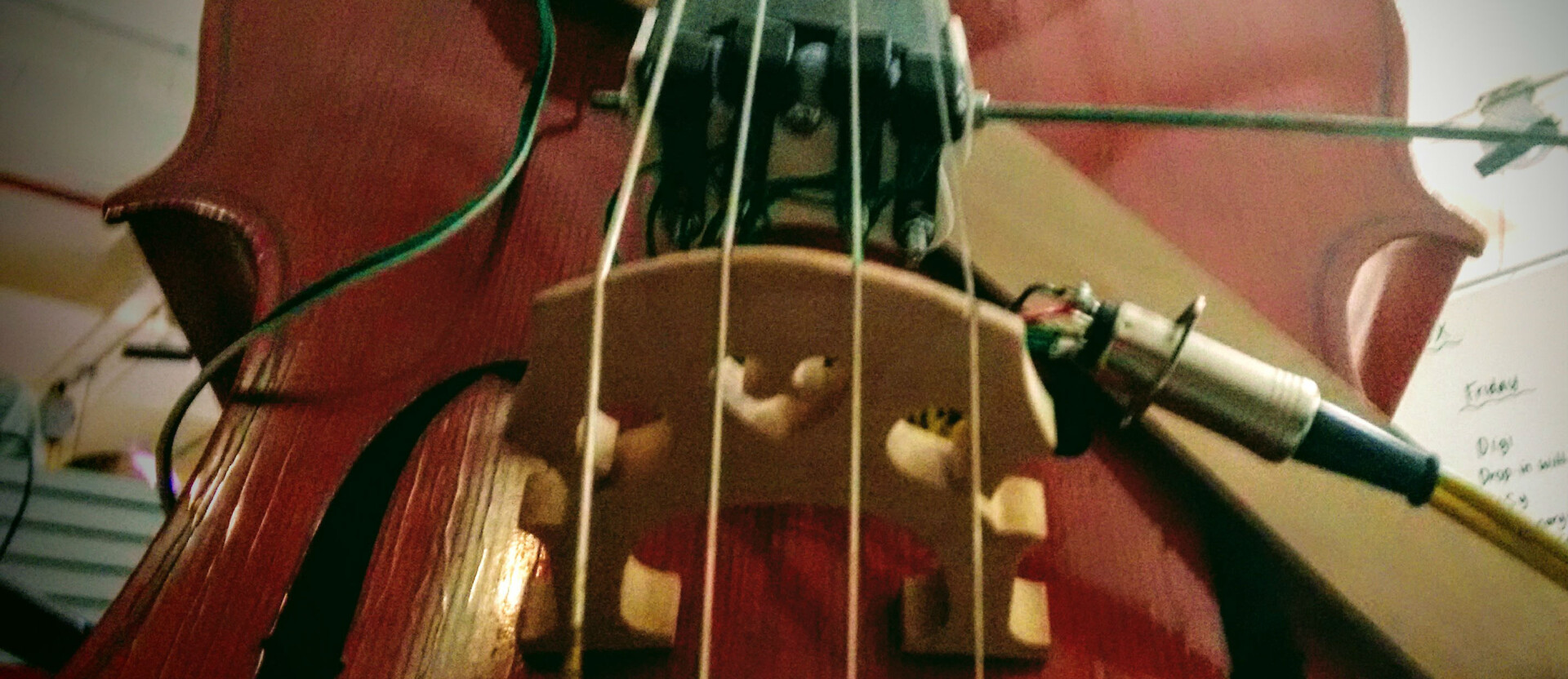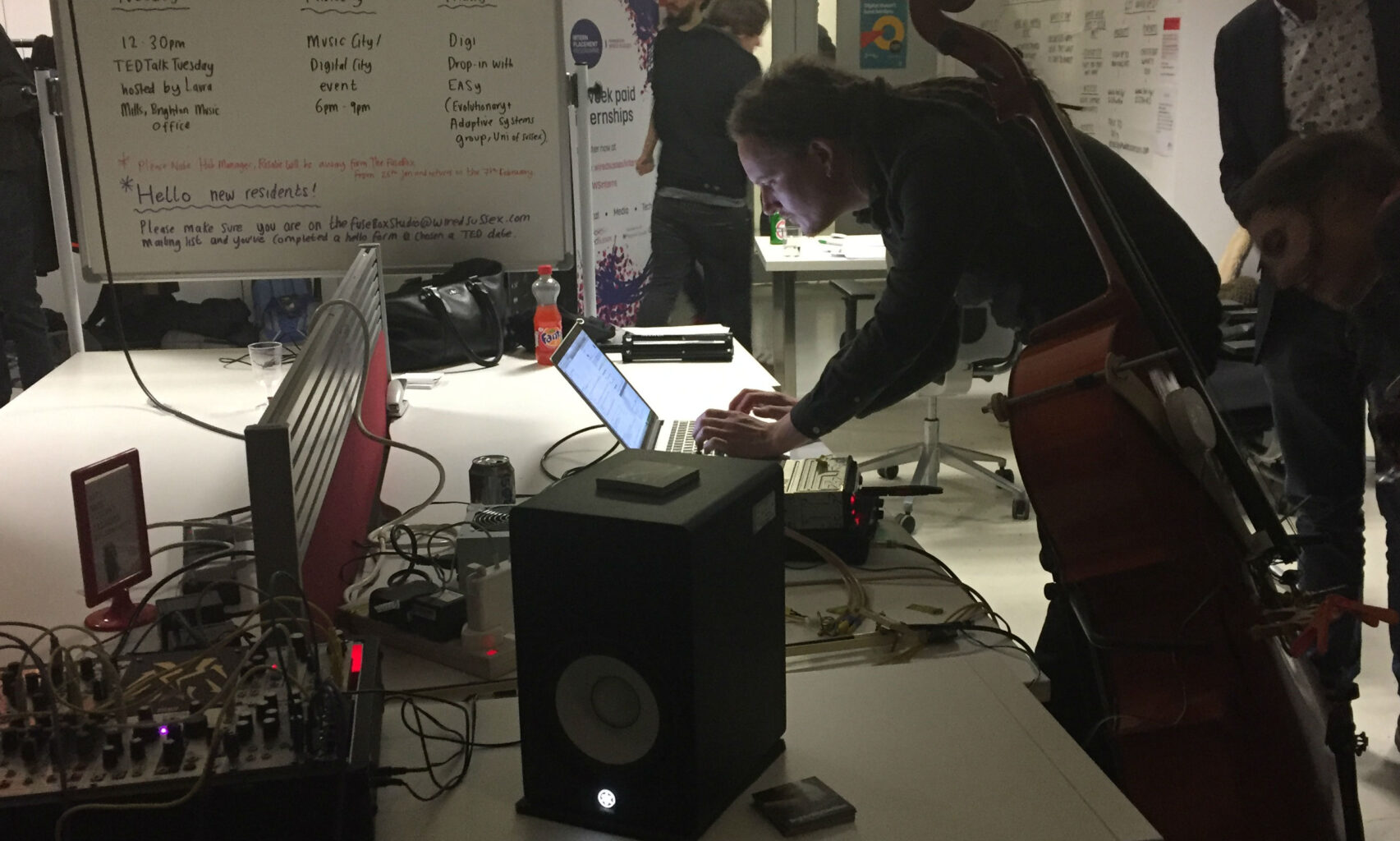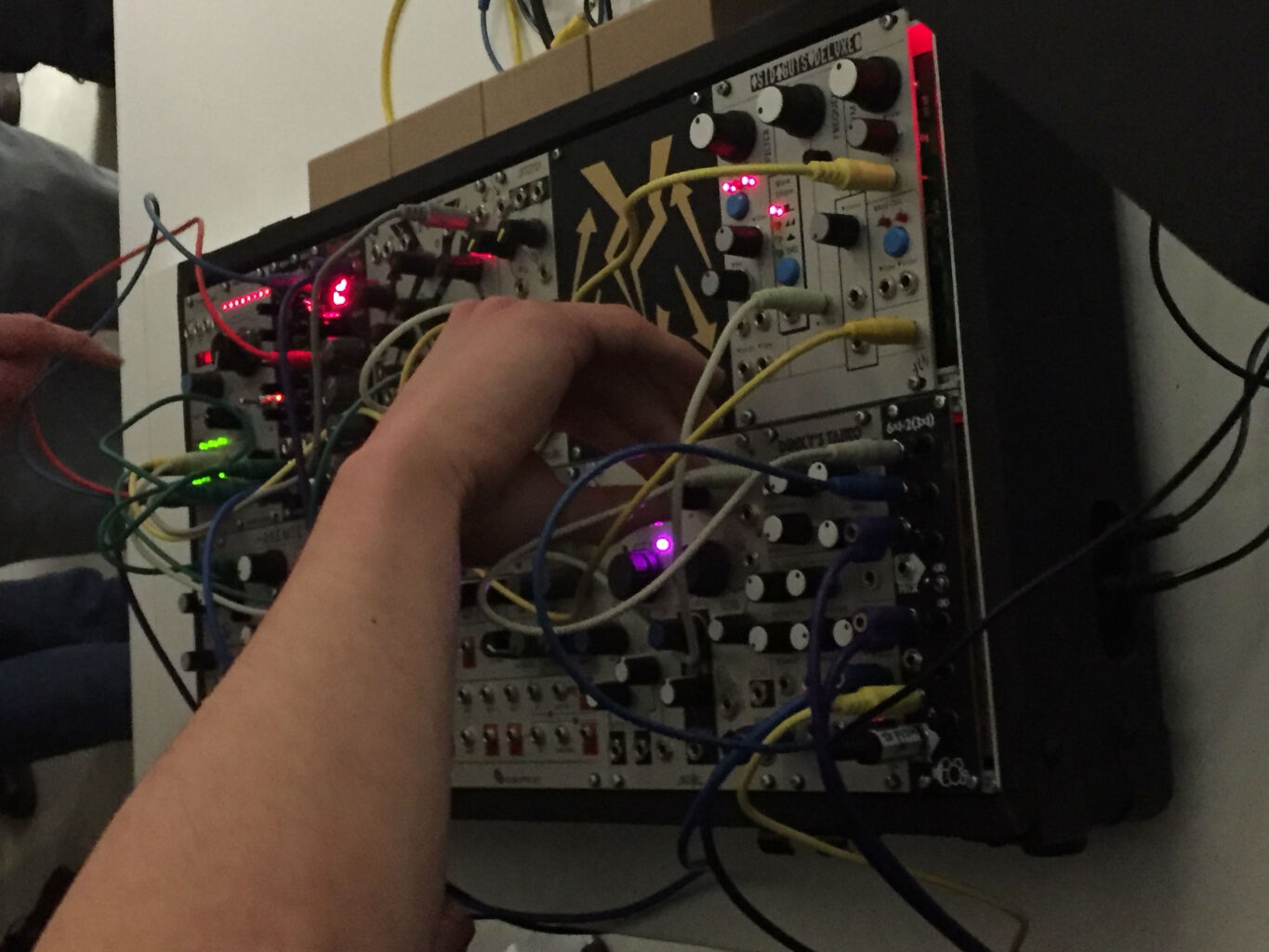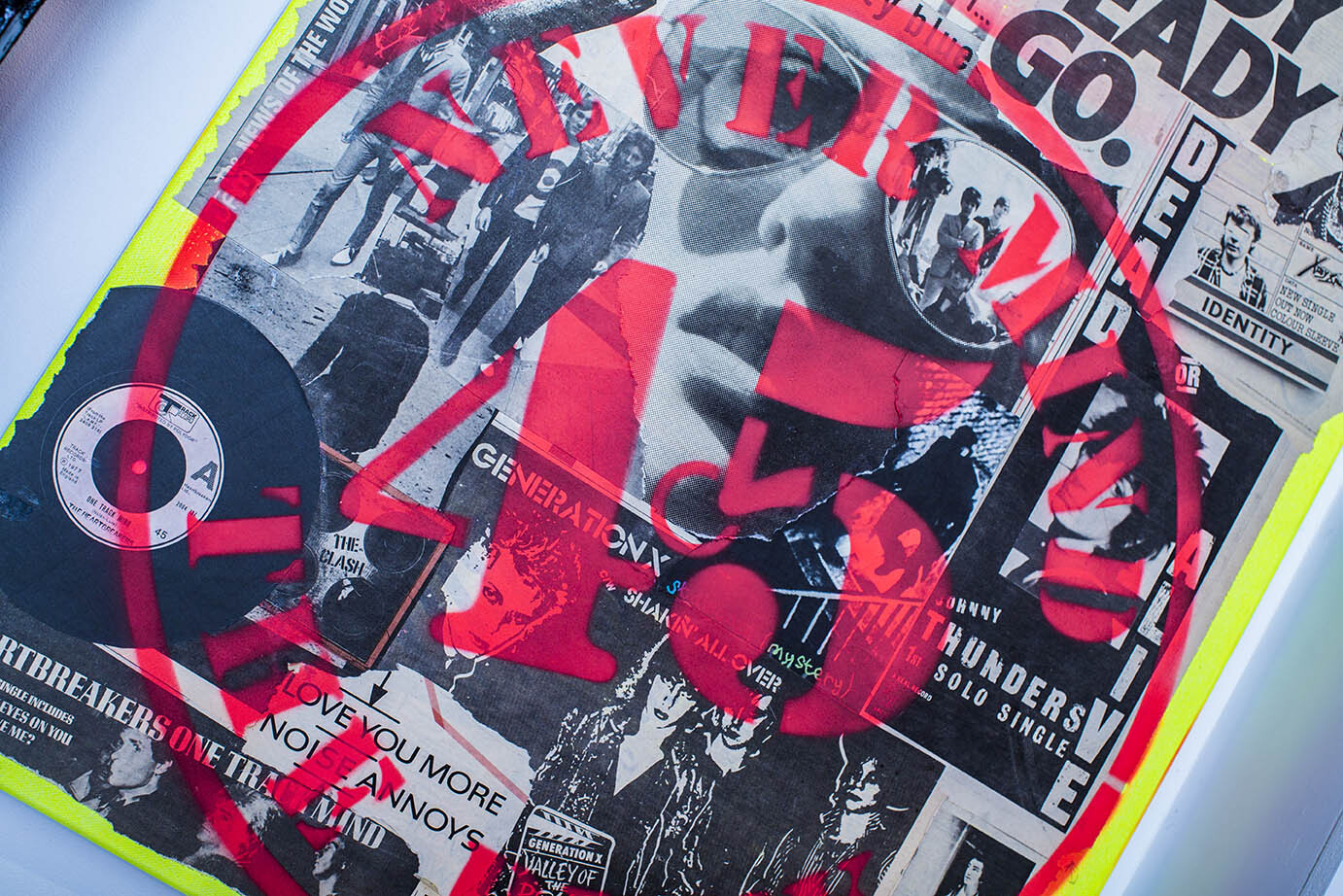

Digital Catapult's Brighton Music City/Digital City event was a fascinating prelude to what will hopefully be a new era of musical and digital collaboration, boosting Brighton to international recognition as both a digital and musical hub.
Last Thursday, key players from Brighton’s digital and music industries bonded over drinks, showcasing products that have been created between the two industries, and exploring how they could work together more closely in the future.
Wired Sussex’s Digital Catapult Music City/Digital City event was an exciting chance for experts to share ideas and devise collaborations, linking Brighton’s musical talent with its boundary-pushing digital innovators.
The talking points ranged from fair-trade music practices to an immersive musical experience shared via smartphones. Bozboz’s own Mike Hollingbery also took to the floor, discussing his work across both sectors.
The night was a fascinating prelude to what will hopefully be a new era of collaboration, boosting Brighton to international recognition as both a digital and musical hub.

The evening kicked off with an introduction to the space where digital and musical progress overlap - the business of creating experiences. From a digital marketing perspective, this struck close to home. After all, it is in creating powerful content that we allow users to experience brands, artists and musicians online.
Digital marketing may seem worlds apart from a great gig, but in essence the two are similar, creating an evocative experience that will generate memories and cause audiences to invest in a brand - or band.
How can digital media make Brighton the UK’s first official music city? That was the question Brighton Music Office representative Chelsea Rixson answered, having interviewed industry members and compiled a comprehensive report.
The Music Office aims to create a virtual space that definitively maps Brighton’s musical offerings. A city-wide gig guide and musical directory seem like a tall order, but thanks to sophisticated web-scraping software they may hit our screens soon - so there’ll be no excuse for a boring Friday night.
Brighton has long been making waves in the musical world with a constant rota of live music experiences. James Turnbull and Helen Jewell of the Old Market unpacked what live music means in a digital world.
“It’s important that the immersive sacred space is protected”, James explained. While technology makes it possible for remote audiences to ‘attend’ events across the world, the Old Market uses technology to blur lines between gigs, theater and digital entertainment.
“We want gig-goers to have agency in their cultural consumption,” explained Helen, discussing the cross-industry labs that Old Market run, expanding the boundaries of live experience.
With a little digital input, gigs may soon be less about watching an artist on stage, and more about interacting with artists and audience alike, intrinsically involved in a unique experience.

Julian Dean, founder of Brighton label Raygun Music, harked back to an era in which talented artists could quickly find a label - and the good times rolled.
What changed? Technology. “We had to spend a lot of time fighting the tech community and hating Lars Ulrich for that,” Julian joked. Royalties and rights have increasingly distanced artists from profit, as well as from the consumers themselves.
This sentiment was echoed by Republic of Music’s Keith McColl, who bemoaned the loss of passionate fan communities: “The community outlets have been sucked up by corporates. These sites are started by dedicated fans, but they've grown up now and they want to get paid.”
While the digital world has a role to play in the music industry’s problems, it can also be looked for to provide solutions. Julian noted, however, that closer integration is key to this. With the rise of content marketing and user-generated content, digital marketing is ripe with ways for artists and fans to connect meaningfully.
Bozboz’ Mike Hollingbery marked the shift in direction between musical and digital talks. As a one-time DJ turned digital marketing guru, he was able to bridge the gap between the two camps perfectly, discussing both passion and profits.
“I got thrown in the deep end, digitising music and working out how people can buy an mp3 and t-shirt simultaneously,” Mike said of his early years in the industry. Having gone from coding in his bedroom to working with industry names such as Goldie, Friction and Andy C, his story is proof that digitally savvy music lovers can have the best of both worlds - so long as they can spot gaps in the market.
“If you want to work in the music space, it's about understanding who you want to work with and what you want to get out of it,” Mike explained. While Bozboz has diversified to work with multiple industries, Mike’s passionate musical approach remains at its core. As a result, the brand is now recognised and trusted by festivals, artists and recording studios across the UK.
One of the more empowering aspects of the digital world is the chance for artists to reach out beyond traditional industry hierarchies. Carlotta, head of research at Imogen Heap’s Mycelia project, explained how that sense of artistic agency could be developed into a truly fair trade music ecosystem.
While we can all remember the excitement of pulling a thick booklet of lyrics and credits out of a new CD, nothing in the digital music world really compares - meaning that collaborators, session musicians and songwriters often miss out on the credit they’re due.
Mycelia offers a system in which streamed or downloaded music automatically contains all of this information as metadata, allowing consumers and collaborators to access a whole network of talent and laying the foundations for a new digital marketplace.
The evening concluded with a talk from the Experimental Music Technologies Lab. Thor Magnusson set the tone, explaining how “Music is a prosthesis or extension of ourselves - through tools, but also language - and one of those languages is code.”
With projects such as a feedback cello, live-coded music and robotic choreography, the Lab literally combines the digital and the musical, changing perceptions about where science ends and art begins.
Thanks to Digital Catapult Brighton, we were able to not only hear insights from the cutting edge of music technology but also readjust the way we view the musical and the digital.
Rather than two separate entities, we can begin to imagine them as disciplines born from a common desire to communicate. It is up to us to facilitate this intrinsic partnership, learning from each industry in turn.



If you want to showcase your offering, convert more leads, provide resources, or all of the above, we can build a website that separates you from the competition.



